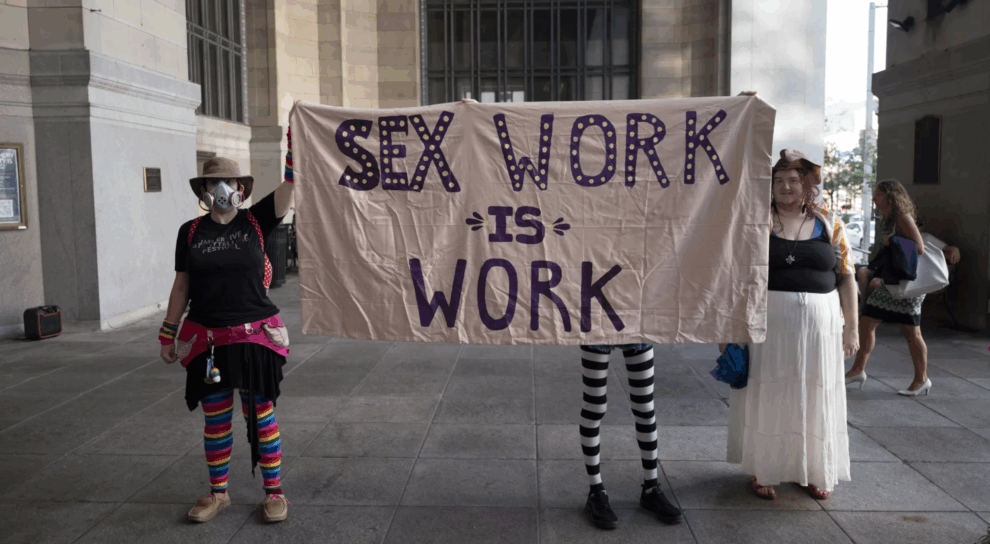Activists told reporters that prostitution and LGBTQ issues overlap in the city because many prostitutes also identify as transgender.
Pittsburgh City Council has unanimously approved a sweeping ordinance that reduces penalties for prostitution, as well as acquiescing to the demands of LGBTQ activists.
The ordinance, introduced by Councilmember Barb Warwick, reduces the penalty for engaging in “sex work” from a misdemeanor offense—punishable by up to a year in jail and fines up to $10,000—to a summary offense, akin to a traffic ticket. The maximum penalty would be $100, with the option of community service instead of a fine. The bill also eliminates the court appearance requirement for such charges.
The new directives also cover those who engage in a variety of LGBTQ-related activities, from drag shows to participation in sports based on gender identity rather than sex. Another bill bars healthcare providers from denying care based on gender identity or expression, in a direct response to UPMC’s recent halt on transgender procedures for minors.
An ordinance decriminalizing sex work is headed to Pittsburgh City Council | Social Justice | Pittsburgh | Pittsburgh City Paper https://t.co/xgavQNzV8e
— 1HoodPower (@1HoodPower) July 7, 2025
The measures passed unanimously on July 8, raising concerns among some residents and officials who fear they could encourage illegal behavior and undermine federal law.
As if we didn't have enough problems: #Pittsburgh left-wing Councilmembers want to decriminalize prostitution. Worse yet, lame-duck @MayorEdGainey agrees. #GetToughOnCrime https://t.co/ew6XfAOiOM
— GOP412 (@GOP412) June 24, 2025
In conversation with reporters, activists supporting the ordinance clarified that prostitution was being lumped together with LGBTQ matters because a high volume of sex workers in the city also identify as transgender.
Alexandra Weiner, a former prostitute who describes himself as a trans woman, characterized Allegheny County Jail as “notorious for the torture of trans women.”
Some activists have also tied the matter to the federal hot topic of immigration; Christina Huang, a North Side resident, warned that prostitution-related convictions can jeopardize immigrants’ ability to stay in the country, as a prostitution conviction is a misdemeanor that can trigger deportation.
Those who support the new measure, which is modeled after the city’s 2015 decriminalization of cannabis possession, say it will empower sex workers to seek help without fear of harsh legal consequences. Currently, prostitution remains illegal under Pennsylvania state law, and police still have the authority to pursue misdemeanor charges if they deem it necessary.
Critics of the measure, including community voices, warn that the change could encourage more prostitution in Pittsburgh overall. Some residents have even pointed out that easing penalties could lead to an increase in human trafficking and limit police efforts to target criminal networks.
“What you’re doing now is you’re just trying to rally a community against ‘the Man’ and the establishment. That’s it,” KDKA radio host Colin Dunlap quipped, directing his comments to Warwick.
“This isn’t about your pet projects or the people you pander to. This is about a city that’s got no money […] and pandering to a bunch of people with 200 different flags in their social media profile.”
Council President Daniel Lavelle and Councilmembers Erika Strassburger, Deb Gross, and Khari Mosley co-sponsored the sex work ordinance alongside Warwick. The city’s Commission on Human Relations urged impacted individuals to report discrimination, pledging case-by-case investigations.











